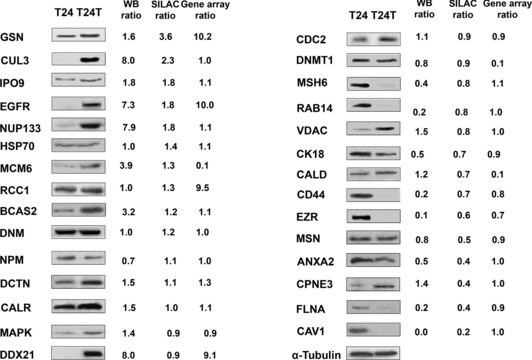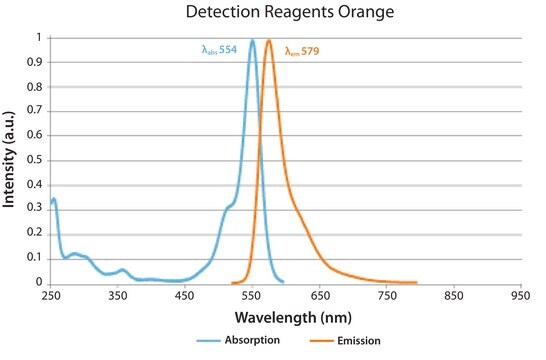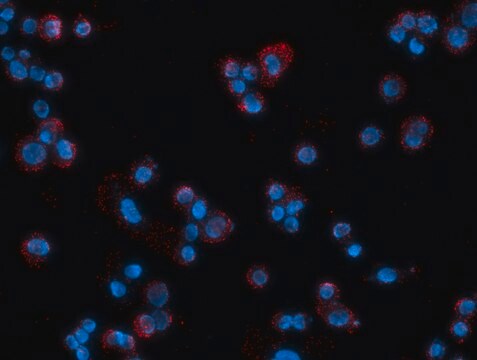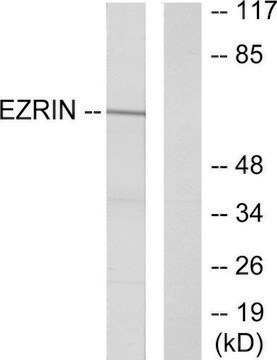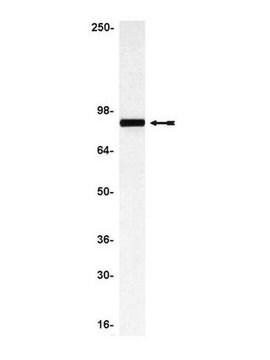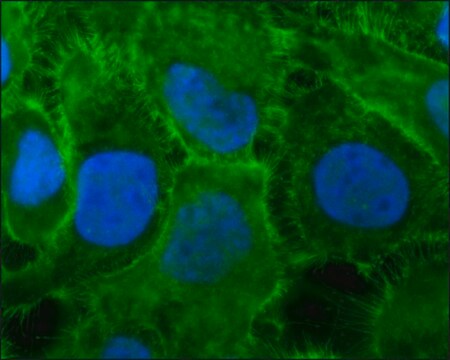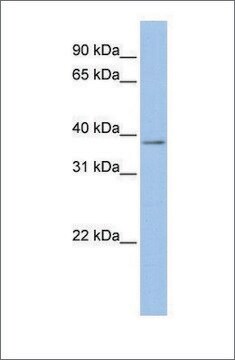SAB4200806
Anti-Ezrin antibody, Mouse monoclonal
clone 3C12, purified from hybridoma cell culture
Sinónimos:
Cytovillin, Villin-2, p81
About This Item
Productos recomendados
origen biológico
mouse
forma del anticuerpo
purified from hybridoma cell culture
tipo de anticuerpo
primary antibodies
clon
3C12, monoclonal
Formulario
buffered aqueous solution
mol peso
~80 kDa
reactividad de especies
bovine, canine, hamster, kangaroo, human, monkey, rat, mouse
envase
antibody small pack of 25 μL
concentración
~1 mg/mL
técnicas
immunoblotting: 1-2 μg/mL using using canine MDCK cells extract
immunofluorescence: 0.5-1 μg/mL using human epidermoid carcinoma A431 cells.
isotipo
IgG1
Nº de acceso UniProt
Condiciones de envío
dry ice
temp. de almacenamiento
−20°C
modificación del objetivo postraduccional
unmodified
Información sobre el gen
mouse ... Ezr(22350)
Descripción general
The ERM proteins family are involved in the functional expression of membrane proteins on the cell surface, integrate Rho guanosine 5′-triphosphatase (GTPase) signaling regulating cytoskeletal organization and act as protein kinase A (PKA)-anchoring proteins. Therefore, ERM proteins seem to play an important role in the membrane transport of electrolytes by ion channels and transporters.
Inmunógeno
Aplicación
Forma física
Otras notas
¿No encuentra el producto adecuado?
Pruebe nuestro Herramienta de selección de productos.
Código de clase de almacenamiento
12 - Non Combustible Liquids
Clase de riesgo para el agua (WGK)
WGK 1
Punto de inflamabilidad (°F)
Not applicable
Punto de inflamabilidad (°C)
Not applicable
Elija entre una de las versiones más recientes:
Certificados de análisis (COA)
¿No ve la versión correcta?
Si necesita una versión concreta, puede buscar un certificado específico por el número de lote.
¿Ya tiene este producto?
Encuentre la documentación para los productos que ha comprado recientemente en la Biblioteca de documentos.
Global Trade Item Number
| Número de referencia del producto (SKU) | GTIN |
|---|---|
| SAB4200806-100UL | 4061838045706 |
| SAB4200806-25UL | 4061838045720 |
Nuestro equipo de científicos tiene experiencia en todas las áreas de investigación: Ciencias de la vida, Ciencia de los materiales, Síntesis química, Cromatografía, Analítica y muchas otras.
Póngase en contacto con el Servicio técnico